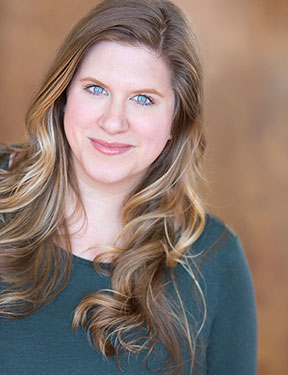Many Chicago theatres are in the midst of holding their General auditions. These auditions require a monologue. Performing a monologue, (while a standard in our trade) can still seem daunting. Finding the right piece can be one of the most stressful parts of an upcoming audition. It’s one of the only times in your career when you will get the chance to cast yourself. What should you choose? What are Casting Directors looking for?
Linda Gillum, Remy Bumppo Theatre
 Clear Moment Before – what is the trigger that provokes you to speak? The monologue does not start with the first line – it starts with a first action.
Clear Moment Before – what is the trigger that provokes you to speak? The monologue does not start with the first line – it starts with a first action.Adam Belcoure, The Goodman Theatre
 1. Make sure that your objective and all actions are taken from the text and focused on your partner. Not for the sake of the audition.
1. Make sure that your objective and all actions are taken from the text and focused on your partner. Not for the sake of the audition.
2. Remember to endow your partner with the ability to affect you.
3. Choose material that you could be cast in today.
4. Love the selection. Love working on it and love doing it.
Erica Sartini, The Goodman Theatre
 I would recommend using a piece that is active and has some moment of change for the character but do avoid extreme emotion pieces.
I would recommend using a piece that is active and has some moment of change for the character but do avoid extreme emotion pieces.
I also think it is important to choose a piece that is reflective of your access point into the theatre scene. In other words, if you are 20 something, do not choose a monologue written for someone with the experience of a 50 year old, even if you played those roles in college. For me personally, a strong introduction to an actor’s work through a monologue is when the piece is more in line with your age and experiences. It helps actors simply bring more of themselves to their work.
Bob Mason, Chicago Shakespeare Theatre
 Select a monologue that has discovery. If you begin your monologue sullen and angry and end your monologue sullen and angry, you have not shown me many sides of yourself, and more than likely cheated the playwright by over-simplifying his work. The best monologues involve a character in the process of discovery, realization, and change because it is active (and it helps you from going to a general emotional place). I want to see your character think and be surprised. And humor never goes unappreciated. Shakespeare makes this easy once you learn how to specifically follow the language he has given you. Every good piece has a journey, no matter how short.
Select a monologue that has discovery. If you begin your monologue sullen and angry and end your monologue sullen and angry, you have not shown me many sides of yourself, and more than likely cheated the playwright by over-simplifying his work. The best monologues involve a character in the process of discovery, realization, and change because it is active (and it helps you from going to a general emotional place). I want to see your character think and be surprised. And humor never goes unappreciated. Shakespeare makes this easy once you learn how to specifically follow the language he has given you. Every good piece has a journey, no matter how short.
Also, I don’t know what is about the floor, but actors often start their moment before by staring at it. Put the stimulus you are responding to slightly above our heads.
JC Clementz, Steppenwolf Theatre
 Approach characters in your monologues the same way you’d approach the characters in a production in which you’ve been cast. I know this sounds like a lot of work for something that lasts less than a commercial break. But would an entrepreneur not do all their research before making a pitch to fund their project? Obviously, not. You need to approach every aspect of your career that you can control with 100% effort.
Approach characters in your monologues the same way you’d approach the characters in a production in which you’ve been cast. I know this sounds like a lot of work for something that lasts less than a commercial break. But would an entrepreneur not do all their research before making a pitch to fund their project? Obviously, not. You need to approach every aspect of your career that you can control with 100% effort.
We hope you’ve found actionable ideas and that you rock your next audition!


